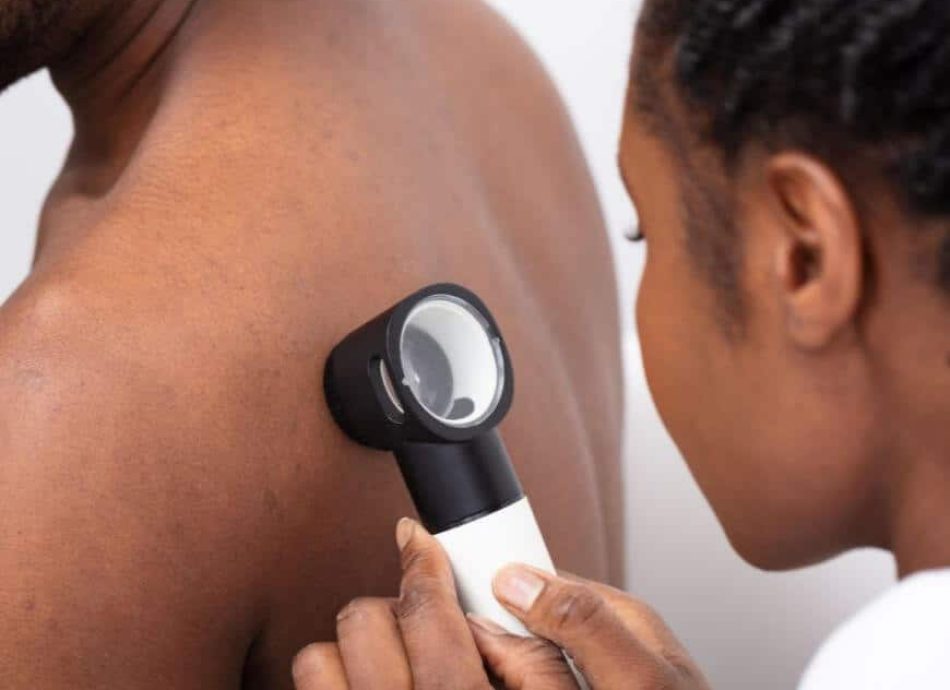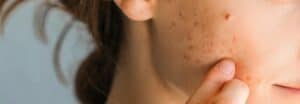Award winning dermatology service, with over 20 years of experience
Short waiting lists, on some occasions offering same week appointments
Safe environment, in Care Quality Commission approved facilities
Conditions
SKin allergy PATCH TESTING IN CANTERBURY
At Canterbury Skin and Laser Clinics, our patch testing facility is a specialised unit designed to identify the sources of allergic contact reactions that may be affecting your skin. In addition to patch testing, we offer comprehensive blood allergy testing to detect allergic components that may be contributing to your skin issues. The substances used in these tests are commonly found in everyday products and can cause skin allergies. Typical allergens include metals, perfumes, rubber, glues and preservatives found in various toiletries. Please note that patch testing does not identify allergies related to diet, hay fever or asthma.
WHAT IS an ALLERGY PATCH TEST?
Your First Patch Test Visit
Your Second Patch Test Visit
Your Third Patch Test Visit
FREQUENTLY ASKED QUESTIONS
WHAT ARE THE “DOS AND DON’TS” DURING PATCH TESTING
- Get the patches or markings wet in the bath or shower
- Work up a sweat by exercising too hard
- Go swimming
- Wear pale or valuable clothing as the ink may stain it
- Expose yourself to sunlight
- Take immunosuppressive medications (if you are already taking these, patch testing may not be possible as the results will be suppressed)
- Use the shower cautiously and sponge wash yourself while keeping the patches/markings out of the water flow
- Shower on the morning before your patch test, as you won’t be able to have a proper shower for at least the next 96 hours
- Enjoy a break from exercise or sport that causes you to sweat
- If you notice a patch coming loose, try to tape it down yourself
- Contact the clinic if you have any questions or concerns
- Remember, these restrictions and recommendations need to cover the entire period from the first visit right through to the last, or the results may be invalidated
WHAT SIDE-EFFECTS MAY OCCUR?
- Reactions that become red, swollen or even blistered.
- Strong positive allergies may cause persistent reactions that can take a few weeks to disappear.
- Eczema may flare up in response to a positive patch test.
- Inflammation can cause pigment changes, which may lighten or darken the skin. These changes sometimes last for a few months but are rarely permanent.
WHO SHOULD AVOID PATCH TESTING?
REQUEST A CALL BACK
Please fill in this form and one of our team will give you a call back to arrange a consultation with one of our expert dermatologists.

What our Customers Say
WHY GET YOUR ALLERGIES PATCH TESTED AT CANTERBURY SKIN AND LASER CLINIC?
Here at Kent’s leading private skin and laser clinic, our experts are specialists in all aspects of dermatology, skin cancer, anti-ageing and beauty treatments. We are one of the few skin clinics in the UK where all medical consultations and treatments are provided by specialist doctors with Dermatology experience and laser training.
Canterbury Skin and Laser Clinic is regulated by the Care Quality Commission, ensuring the best level of treatment is provided to you in a safe environment. Our Clinical Lead Dr Mark Hudson-Peacock is a member of the British Association of Dermatologists, the British Laser Medical Association, the British Hair and Nail Society, the European Academy of Dermatology and Venereology and is certified by the Consulting Room. We have won many awards including the WhatClinic Patient Service Award in 2019 and the ghp Healthcare and Pharmaceutical Awards 2019.
latest INSIGHTS AND ADVICE

Safeguard Your Skin – The Comprehensive SPF Guide
Discovering the Power of Sunscreen The SPF label on skincare products might leave you puzzled, especially if you’re a skincare beginner. But worry not, we’ve got you covered. In this comprehensive guide, we’ll explore why SPF is essential for skincare, how to pick the right

Varicose Veins: Recognising, Managing and Preventing
Varicose veins, with their knotted, engorged appearance, can steal the allure of your legs and cause discomfort. Such veins are common, especially as we age. Unlocking the complexities of varicose veins is essential in managing and reducing their complications. This exhaustive guide unravels the mysteries

Understanding Acne: A Deep Dive For Acne Awareness Month
Acne Awareness Month is marked globally in June. It’s an opportunity to shed light on one of the world’s most common skin conditions, emphasising the importance of education, support and accessible treatments for those living with acne. Acne Awareness Month seeks to debunk misconceptions, share




